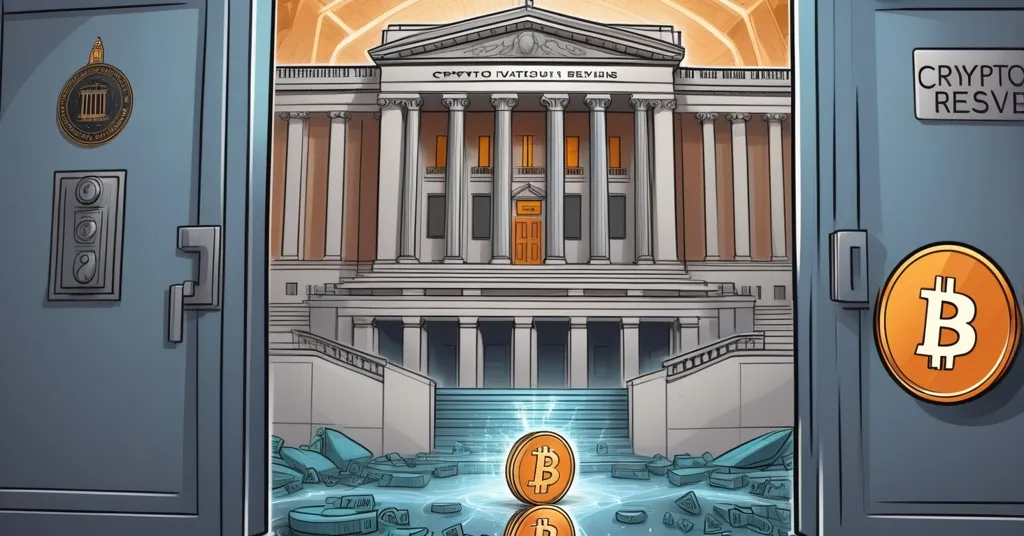Arizona Advances Crypto Reserve Bills Amid Veto Threats and Fraud Legislation

Arizona’s Crypto Reserve Bills Advance Amid Veto Threats and Fraud Legislation
Arizona is breaking new ground in state-backed cryptocurrency management with two pivotal bills nearing final votes, yet facing potential vetoes over funding disputes.
- SB 1373: State-managed fund for seized digital assets
- SB 1025: Bitcoin-specific reserve fund
- Governor Hobbs’ veto threat over disability funding
- House Bill 2387: Tackling Bitcoin ATM fraud
Arizona’s State Bill 1373, known as the Strategic Digital Asset Reserve Bill, has advanced to a final House vote after passing the Committee of the Whole on April 18, 2025. This bill aims to establish a fund composed of cryptocurrencies seized in criminal proceedings. The state treasurer will manage this fund, with the authority to invest up to 10% of its value in digital assets each fiscal year and loan out the fund’s holdings without increasing financial risk. This move positions Arizona as a trailblazer in integrating cryptocurrencies into state financial strategies.
Parallel to SB 1373, State Bill 1025, also known as the Arizona Strategic Bitcoin Reserve Act, passed the House on April 1, 2024, and is awaiting its final vote. This bill focuses exclusively on Bitcoin, allowing the state’s treasury and retirement system to allocate up to 10% of available funds into BTC, which would be stored in a separate account specifically for Bitcoin storage. While SB 1373 casts a wider net over digital assets, SB 1025’s focus on Bitcoin underscores the state’s specific interest in the leading cryptocurrency.
However, the path to these bills becoming law is fraught with political hurdles. Arizona Governor Katie Hobbs has threatened to veto all bills until lawmakers address a $122 million shortfall in funding for the state’s Division of Developmental Disabilities. In a bold move, Hobbs vetoed 15 bills in a single week, setting a record for the highest veto rate among U.S. governors in 2024. Her stance was articulated in a statement criticizing the Republican-controlled legislature’s funding proposal as “unserious and a complete nonstarter.”
Arizona Governor Katie Hobbs has threatened to veto all legislation until lawmakers pass a bill to fund disability services.
Beyond the reserve bills, Arizona is also confronting the darker side of the crypto world with House Bill 2387, introduced in February to combat Bitcoin ATM fraud. This legislation proposes transaction caps, mandatory licensing for operators, and refund policies to safeguard users from fraudulent activities. A Bitcoin ATM, for those unfamiliar, is a machine that allows users to buy or sell Bitcoin with cash or debit cards. Transaction caps limit the amount of money that can be transacted in a single session, helping to prevent large-scale fraud. It’s a clear signal of the state’s commitment to fostering a secure environment for cryptocurrency transactions, reflecting the dual nature of innovation and regulation in the crypto space.
The legislative efforts in Arizona reflect a broader trend of states integrating digital assets into public finance frameworks, yet the political standoff over disability services funding introduces uncertainty. While the potential for these bills to set a precedent for other states in leveraging blockchain technology is exciting, the reality of political tensions could delay or derail these initiatives. This situation highlights the intersection of state policy, cryptocurrency, and broader socio-economic concerns, a reminder that even in the world of decentralized finance, traditional politics can still play a major role.
Amidst this legislative fervor, it’s crucial to remember that while Arizona’s moves could accelerate crypto adoption, they also raise questions about the balance between innovation and regulatory oversight. The state’s efforts to curb Bitcoin ATM fraud are commendable, yet they also underscore the challenges of managing the risks associated with cryptocurrencies. As Arizona navigates this complex landscape, it’s a testament to the potential of blockchain technology to disrupt the financial status quo, even as it faces the hurdles of political realities.
Let’s not forget the potential for scams and unrealistic price predictions that often plague the crypto space. Arizona’s legislative efforts are a step in the right direction, but we must remain vigilant against those who would exploit the system for personal gain. The state’s focus on Bitcoin with SB 1025 aligns with the principles of Bitcoin maximalism, recognizing the unique role of Bitcoin in the financial revolution. However, the broader approach of SB 1373 acknowledges the diverse ecosystem of cryptocurrencies and their potential to fill niches that Bitcoin might not serve as effectively.
These bills also align with the concept of effective accelerationism (e/acc), pushing the boundaries of financial innovation and adoption. By integrating digital assets into state financial strategies, Arizona is not only disrupting the status quo but also championing the principles of decentralization and freedom that are at the heart of the crypto movement.
Key Takeaways and Questions on Arizona’s Crypto Legislation
- What is the purpose of Arizona’s State Bill 1373?
The purpose of SB 1373 is to create a state-managed fund composed of cryptocurrencies seized in criminal proceedings, with the state treasurer authorized to invest and loan these assets.
- How does State Bill 1025 differ from State Bill 1373?
SB 1025 is focused solely on Bitcoin and allows the state’s treasury and retirement system to allocate up to 10% of available funds into BTC, whereas SB 1373 covers a broader range of digital assets.
- What is the current status of both bills in Arizona?
SB 1373 has advanced to a final House vote, while SB 1025 awaits a final vote after clearing the Committee of the Whole.
- Why might Governor Hobbs veto these bills?
Governor Hobbs has threatened to veto all legislation until lawmakers address a $122 million shortfall in funding for the state’s Division of Developmental Disabilities.
- What additional legislative measures is Arizona taking regarding cryptocurrencies?
Arizona is also addressing Bitcoin ATM fraud through House Bill 2387, which proposes transaction caps, mandatory licensing for operators, and refund policies.



